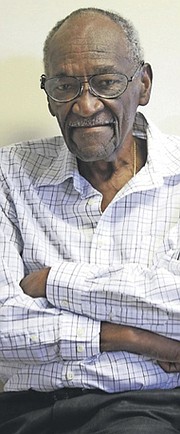Excellent regional law enforcement co-operation sometimes meant politicians were kept in the dark about covert planning, former Assistant Police Commissioner Paul Thompson says.
In my experience, there has been excellent co-operation among law enforcement agencies in our region for decades. In particular, all of the top American agencies worked well with their counterparts in The Bahamas.
These have included the Federal Bureau of Investigation, the Drug Enforcement Administration (DEA), the Secret Service, the Customs Department and the Department of Alcohol, Tobacco, Firearms and Explosives.
During my years on the Royal Bahamas Police Force (RBPF), the co-operation grew from official to personal. We would always receive prompt responses from our American friends, and the same courtesy was applied to their requests of us.
Over the years, the RBPF has been involved in many covert operations, including some that were kept secret from politicians and even senior police officers. For example, one Commissioner was severely criticised for maintaining the secrecy of a US law enforcement operation that ended with the arrest of several baggage handlers at Nassau airport in 2006.
The Americans had enough evidence to prosecute the baggage handlers in the US, but we did not have similar evidence here. So the baggage handlers were sent to Florida for training and were arrested on their arrival. This type of behind the scenes co-operation played an important role in our ongoing efforts to control the drug trade.
Here are a few examples of secret operations in the past that have involved local and foreign law enforcement agencies.
During the time that Salathiel Thompson was Commissioner of Police, we executed a very successful drug raid on Bimini. We sent undercover agents in advance and they provided excellent information, which was kept under wraps by Mr Thompson. The raid was planned by the Commissioner, a senior Defence Force officer and two Assistant Police Commissioners - myself and the late Dudley Hanna.
Search warrants were prepared by Chief Inspector Arthur Yearwood and signed by Magistrate Wilton Hercules, who - for the sake of secrecy - allowed us to retain the court’s copy until after the operation. We filed a flight plan to Freeport because, in those days, any large police contingent leaving Nassau would be immediately known to the drug dealers on the destination island.
Once in Freeport we boarded a Defence Force vessel at midnight and sailed to Bimini. Our men were not aware of the destination until we briefed them at sea, and no government officials were told about the raid because there was no need for them to know. The raid was a big success. It did not end the massive drug operations at Bimini, but it put a serious dent in this criminal activity.
On another occasion I received information that a top American businessman on Paradise Island was trying to sell several kilos of cocaine. I contacted Fred Dick of the DEA and we developed a plan to use American undercover agents (a man and a woman) who would approach the suspect to make the purchase. The agents visited restaurants and bars frequented by the suspect and eventually the female agent made the contact. I was able to arrange (through the co-operation of a local banker) to have a large sum of US dollars placed in a safe deposit box at the bank. The agents took the suspect to the bank and showed him the money.
My officers in the Criminal Investigation Department (CID) monitored all of the suspect’s movements and arrested him when he delivered the cocaine to the agents in their hotel room. Secrecy was key to the success of this sting operation. In fact, even the Commissioner was unaware of the operation. He often told us: “only tell me if you think I need to know.”
Another operation involved a tip that a large shipment of marijuana was about to be landed on Eleuthera by boat from Jamaica. Five Bahamians were on board, and two were related to a local politician. We were told that the men were seeking a purchaser and that a police sergeant in Nassau was the contact. We contacted the DEA, which sent an undercover agent to Nassau to make contact with the sergeant. A deal was made and the DEA sent a boat to Eleuthera to collect the marijuana, with trusted CID officers monitoring the entire operation. Payment was to be made in a suite at the British Colonial Hotel, and this is where the five local men and the sergeant were arrested. Politicians and government officials had no knowledge of this operation until it was over. They did not need to know.
Commissioners of Police have made it very clear to officers in the CID and later in our own Drug Enforcement Unit that confidential information should only be passed on at the officers’ discretion. Follow-up action on the information could be compromised if too many people were aware. The “need to know” rule should always be applied.
There is an exception to this rule, however. Matters of national security must be passed on to the minister responsible and to the Prime Minister at all times. But the investigation and subsequent arrest of criminals should become public knowledge only when completed.
NEXT WEEK: why the requirement to enforce the law in The Bahamas is lacking
Comments and responses to insight@tribunemedia.net





Comments
Use the comment form below to begin a discussion about this content.
Sign in to comment
OpenID